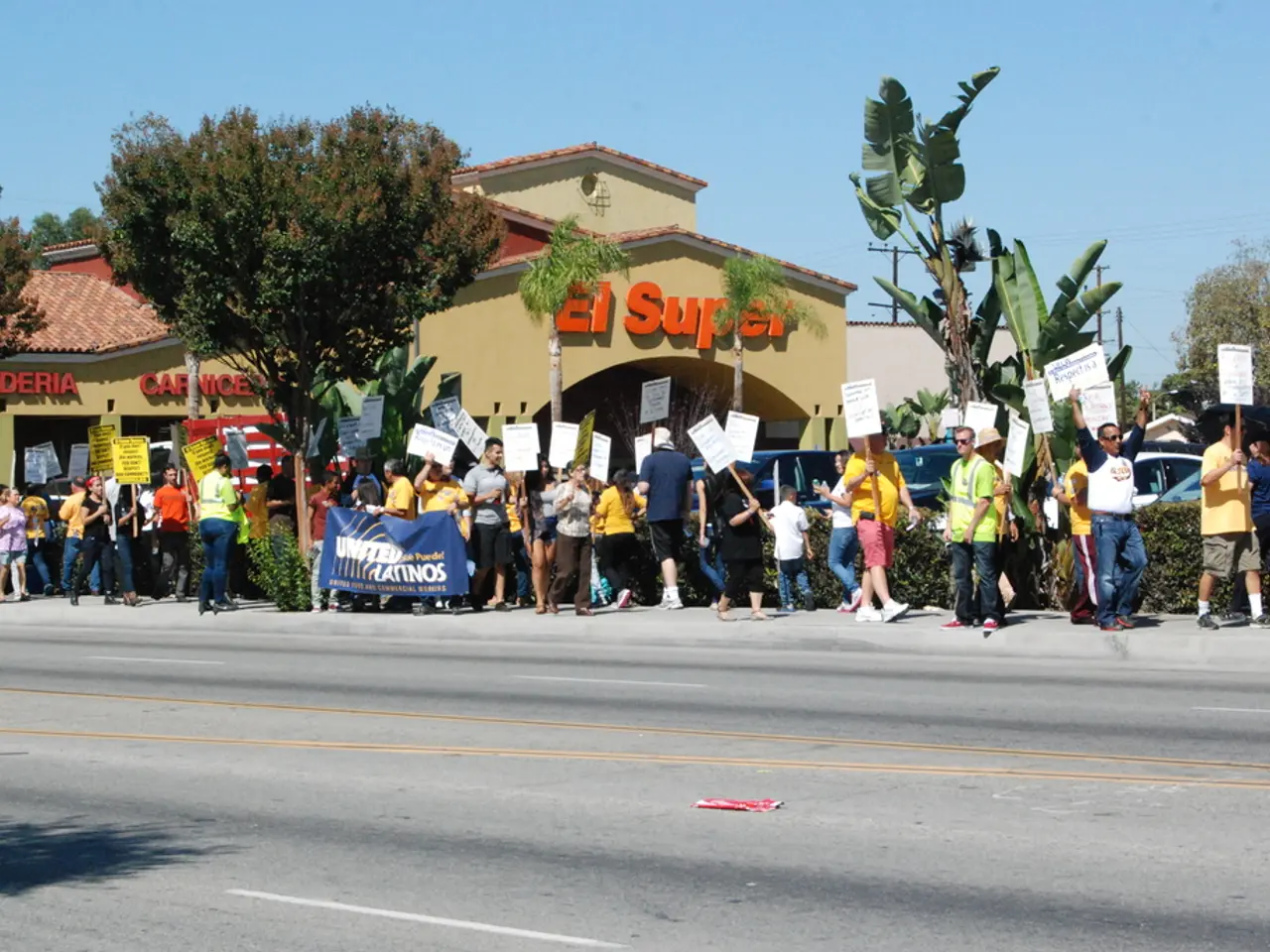Dr. Urban, the school superintendent, advocates for Martin Luther King's principles in pursuit of harmonious coexistence
The Voting Rights Act of 1965, a landmark civil rights legislation, marked a significant victory in the struggle for equality in the United States. Signed into law by President Lyndon B. Johnson on August 6, 1965, the Act aimed to end legal racial discrimination in voting, particularly targeting barriers such as poll taxes, literacy tests, and grandfather clauses that disenfranchised Black voters.
The Voting Rights Act secured the right to vote for millions of African Americans and expanded political participation for Black Americans and other people of color, marking a major triumph of the Civil Rights Movement. The Act's significance lies in its role as a powerful legal tool to enforce the 15th Amendment and protect democracy by ensuring equal access to the ballot.
However, progress made by the Voting Rights Act remains under threat today. The Supreme Court has weakened key provisions, and rulings have made it easier for voter suppression tactics to disproportionately impact Black voters and other minorities. Conservative political moves and legislation, such as the 2025 SAVE Act, intensify these challenges, undermining the VRA’s protections and democracy itself.
The Voting Rights Act represents a vital legal and moral precedent in combating systemic racism in the United States. Its continuing relevance underscores the persistent struggle against institutionalized racism, which today also intersects with the fight against other forms of bigotry, including anti-Semitism. Both racism and anti-Semitism involve systems and attitudes that exclude and marginalize groups, often through political and social mechanisms. The VRA's framework of protecting voting rights emphasizes safeguarding democratic participation from discriminatory practices, which is essential for confronting all forms of hate and exclusion in a pluralistic society.
Dr. Christoph Urban, Superintendent of the Evangelical Church Circle Duisburg, recently emphasized the need for a just coexistence and encouraged peaceful yet determined efforts to combat racism and anti-Semitism. In his video statement, Dr. Urban used Martin Luther King Jr. as a role model for his call to action, highlighting the ongoing relevance of the civil rights movement's principles. The video statement can be viewed on the YouTube channel "Evangelisch in Duisburg."
Martin Luther King Jr., remembered for his role in the civil rights movement, once described voting as a “most powerful nonviolent tool” in a democracy, allowing marginalized groups to challenge systemic racism embedded in electoral practices. The Voting Rights Act's recognition of voting as a powerful tool underscores its enduring importance in ensuring equal representation and safeguarding democracy.
In summary, the Voting Rights Act of 1965 was a key milestone in dismantling racial barriers to political participation, and its ongoing defense and expansion are fundamental to combating systemic racism, protecting democratic inclusion, and supporting the broader fight against all forms of discrimination, including anti-Semitism. For more information about the Evangelical Church Circle Duisburg, including its congregations and facilities, visit www.kirche-duisburg.de.
- Regardless of the Supreme Court's recent weakening of key provisions, the Voting Rights Act's importance in ensuring equal representation and safeguarding democracy extends beyond politics and general news, reaching aspects like the fight against anti-Semitism and systemic racism.
- The Voting Rights Act's significance lies not only in its historical role as a legal tool against racial discrimination in voting but also in its contemporary relevance as a framework for combating all forms of hate and exclusion in a pluralistic society.




